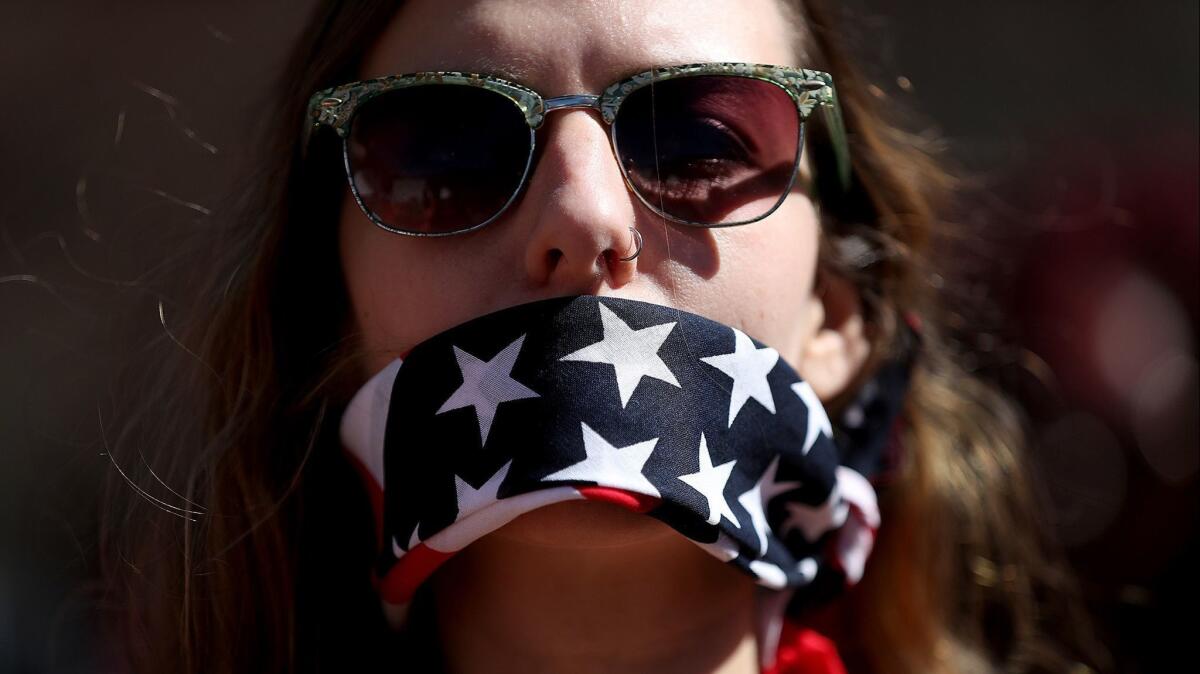Opinion: No, Pompeo, a global gag rule doesn’t protect ‘the least amongst us.’ It hurts the poor

- Share via
It’s astonishing that Secretary of State Michael R. Pompeo, who announced an expansion of the so-called global gag rule that prevents U.S. aid from going to foreign healthcare providers if they also provide or offer guidance on abortions, said his administration “protects the least amongst us.”
That’s absolutely the reverse of what this administration is doing overseas (and at home) when it gives providers of desperately needed healthcare a Hobson’s choice: either stop performing abortions and abortion counseling, or stop receiving vital U.S. aid.
And, by the way, none of these organizations is using U.S. aid money to fund abortions. That is already against the law. The global gag rule (also known as the “Mexico City policy”) is an attempt to control what providers do with their other funds. The further expansion of the gag rule stops nongovernmental organizations that receive foreign aid from funding other groups that provide or offer counsel on abortion.
We get it that the Trump administration is anti-abortion. But what President Trump and his officials don’t seem to get is that their obsession with putting new restrictions on funding to providers of healthcare to the poor doesn’t stop those people from getting abortions. It stops them from getting healthcare.
For example, according to advocates tracking this issue, Family Health Options Kenya has lost $2.2 million in U.S. aid and been forced to close three clinics since the Trump administration reinstated the global gag rule and the organization declined to comply.
The State Department surveyed the effect of the new policy six months after it was adopted and found that 729 prior aid recipients had accepted the money and agreed to the new strings attached, while four had not. But even the State Department has said that it was too early at that point to gauge how broad the policy’s reach is. The nonpartisan Kaiser Family Foundation estimates that at least 1,300 organizations could be affected by the policy.
Sen. Jeanne Shaheen (D-N.H.) and House Appropriations Chairwoman Nita Lowey (D-N.Y.) have re-introduced a bill that would permanently repeal the policy, but it is unlikely to become law while the Republicans control the Senate and Trump is in the White House. That’s unfortunate.
The rule has particularly grim consequences for healthcare providers treating people with HIV and AIDS. Consider this: Agreeing to the gag rule means never being able to give a pregnant woman infected with HIV counseling on abortion.
Is that really the kind of hamstrung healthcare the U.S. wants to encourage?
More to Read
A cure for the common opinion
Get thought-provoking perspectives with our weekly newsletter.
You may occasionally receive promotional content from the Los Angeles Times.










